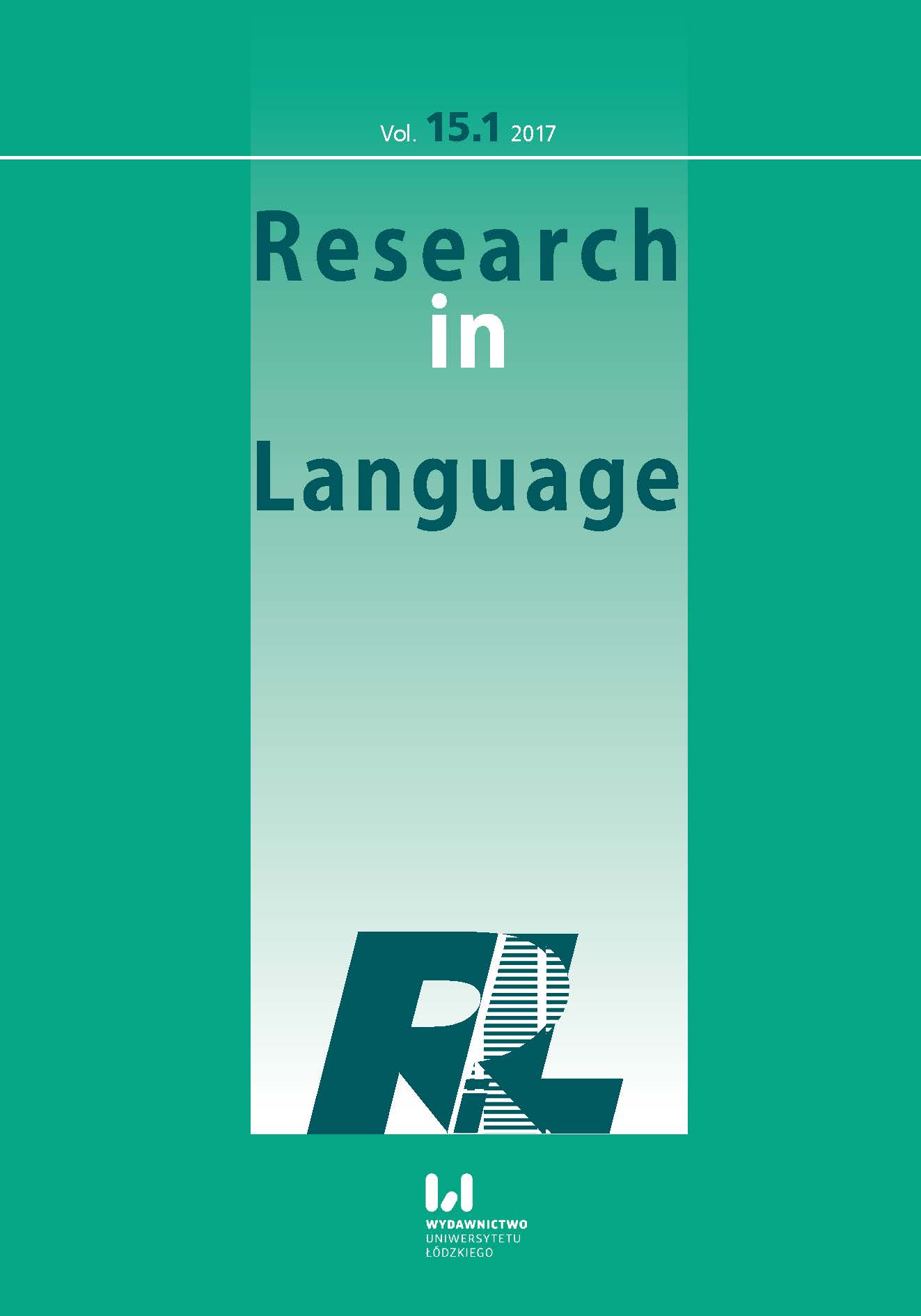Editorial: Relevance Theory and Intercultural Communication Problems
DOI:
https://doi.org/10.1515/rela-2017-0005Keywords:
relevance theory, intercultural communication, Grice, Brown and Levinson’s politeness theoryAbstract
This editorial to the special issue of RiL dedicated to relevance theory and problems of intercultural communication addresses the general requirements that a theory of communication must meet to be applicable to the analysis of intercultural communication. Then it discusses criticism levelled against Grice’s theory of conversational implicature and Brown and Levinson’s theory of politeness on the grounds that these theories were not universal enough to be applied to all data. Finally, it offers some remarks on the applicability of relevance theory to intercultural pragmatics.
References
Brown, Penelope and Stephen C. Levinson. 1987. Politeness: Some Universals in Language Usage. Cambridge: Cambridge University Press.
Google Scholar
Escandell-Vidal, Victoria M. 1996. Towards a Cognitive Approach to Politeness . In K. Jaszczolt and K. Turner (eds.), Contrastive Semantics and Pragmatics, Vol. II: Discourse Strategies, 621-650. Oxford: Pergamon Press.
Google Scholar
Escandell-Vidal, Victoria M. 1998. Politeness. A Relevant Issue for Relevance Theory. In J. M. Martínez and F. Yus (eds.), Special Issue devoted to Relevance Theory, Revista Alicantina deEstudios Ingleses 11. 45-57.
Google Scholar
Escandell-Vidal, Victoria M. 2004. Norms and Principles. Putting Social and Cognitive Pragmatics Together. In R. Márquez-Reiter and M. E. Placencia (eds.), Current Trends in thePragmatics of Spanish, 347-371. Amsterdam: John Benjamins.
Google Scholar
Fukada, Atsushi and Noriko Asato 2004. Universal Politeness Theory: Application to the Use of Japanese Honorifics. Journal of Pragmatics 36. 1991–2002.
Google Scholar
Goldsmith, Daena J. 2006. Brown and Levinson’s Politeness Theory. In B. Whaley and W. Samter (eds.), Explaining communication: Contemporary theories and exemplars, 219-236. Mahwah, NJ: Lawrence Erlbaum Associates.
Google Scholar
Goffman, Erving. 1967. Interaction Ritual: Essays on Face-to-Face Behavior. New York: Anchor Books.
Google Scholar
Grice, Herbert P. 1989a [1975]. Logic and Conversation. In H. P. Grice (ed.), Studies in the Way of Words, 22–40. Cambridge, Mass: Harvard University Press.
Google Scholar
Grice, Herbert P. 1989b. Retrospective Epilogue. In H. P. Grice (ed.), Studies in the way of Words, 339–85. Cambridge, Mass: Harvard University Press.
Google Scholar
Ide, Sachiko 1989. Formal Forms and Discernment: Two Neglected Aspects of Universals of Linguistic Politeness. Multilingua 8(2/3). 223–248.
Google Scholar
Jary, Mark. 1998. Relevance Theory and the Communication of Politeness. Journal of Pragmatics 30. 1-19.
Google Scholar
Keenan Ochs, Elinor. 1976. The Universality of Conversational Postulates. Language in Society 5/1. 67-80.
Google Scholar
Matsumoto, Yoshiko. 1988. Reexamination of the Universality of Face: Politeness Phenomena in Japanese. Journal of Pragmatics 12. 403–426.
Google Scholar
Sperber, Dan and Deirdre Wilson. 1995 [1986]. Relevance: Communication and Cognition, 2nd ed. Oxford: Blackwell.
Google Scholar
Trosborg, Anna. 1994. Interlanguage Pragmatics. Requests, Complaints and Apologies. Berlin: Mouton de Gruyter.
Google Scholar
Van der Henst, Jan-Baptiste, Carles, L. and D. Sperber. 2002. Truthfulness and Relevance in Telling the Time. Mind and Language 17. 457–66.
Google Scholar
Van der Henst, Jan-Baptiste and Dan Sperber. 2004. Testing the Cognitive and Communicative Principles of Relevance. In I. Noveck and D. Sperber (eds.), Experimental Pragmatics, 229-280. Palgrave.
Google Scholar
Van der Henst, Jean-Baptiste, Sperber, Dan and Guy Politzer. 2002. When is a Conclusion Worth Deriving? A Relevance-based Analysis of Determinate Relational Problems. Thinking andReasoning 8. 1–20.
Google Scholar
Wilson, Deirdre. 2015. Does Intercultural Communication Challenge the Principles/mechanisms of Relevance Theory? Plenary talk at ICA Workshop, University of Łódź.
Google Scholar










